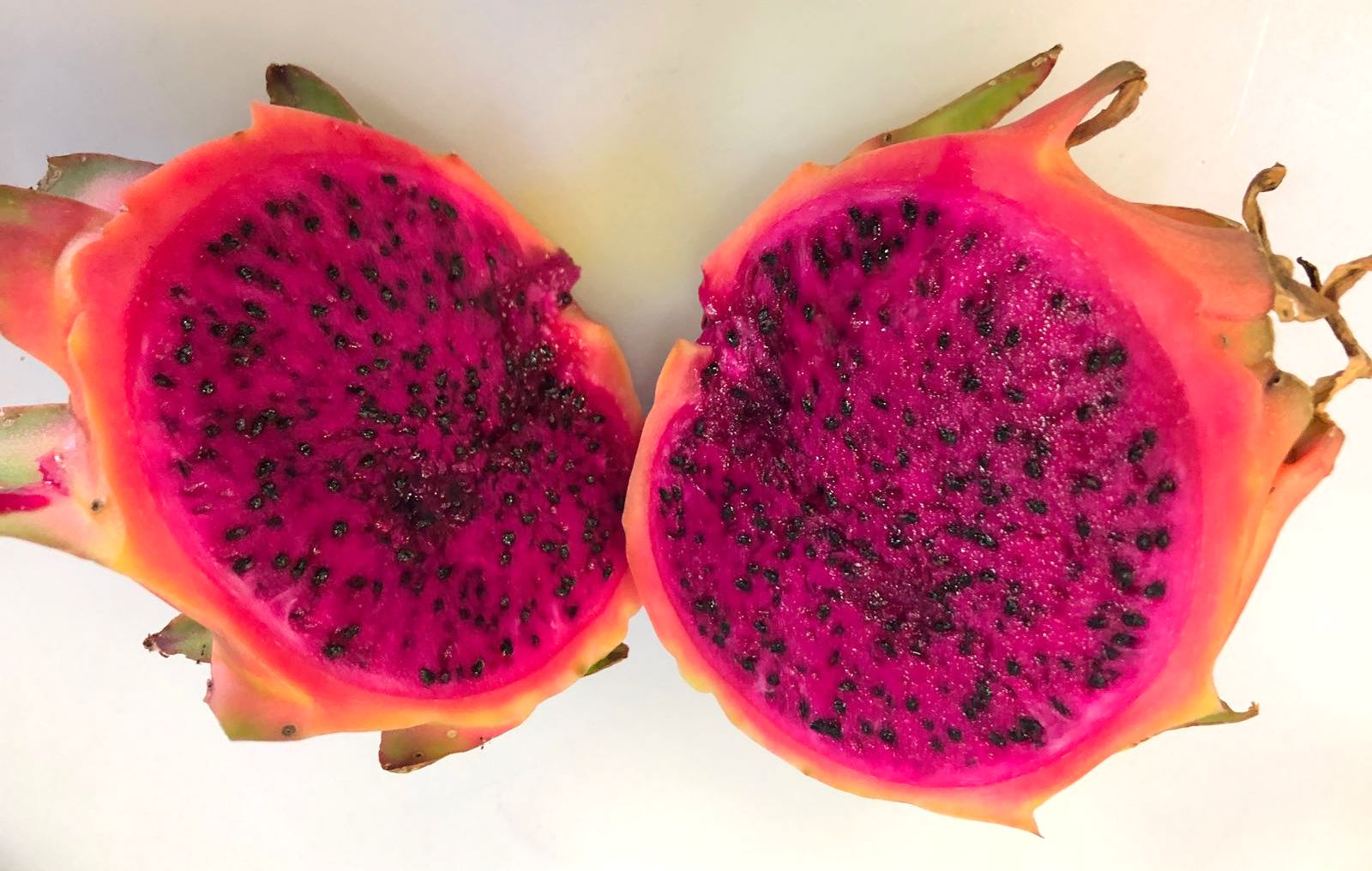
The dragon fruit (or pitaya) is one of nature’s most unique plants, with a flower like an explosion of flame and a fruit like a pink rosebud. They flourish in The Brasserie’s organic garden and when in season, feature prominently on our menu for all to enjoy both the sensational flavour and health benefits that this fruit provides.
Dragon fruit contains a surprising number of phytonutrients. It’s also loaded with antioxidants, and is home to carotene, protein, vitamin C (said to be near 10 percent of the daily recommended value), polyunsaturated (good) fatty acids and B vitamins that may be needed for carbohydrate metabolism. In addition, this tropical fruit doesn’t contain complex carbohydrates, which may allow vitamin B1 (thiamin) along with other B vitamins in the body to break down food more easily in the body.
The dragon fruit is also a source of other nutrients like calcium that may help develop strong bones and teeth, iron that may assist in forming healthy red blood cells, and phosphorus to aid in promoting tissue and cell growth, maintenance and repair.
A phytochemical called captin is present in dragon fruit too. It is typically used in medicines that may help alleviate heart problems. Other known benefits of dragon fruit include boosting the immune system, promoting quicker recovery from wounds and bruises, and reducing the risk for respiratory problems.
Eating dragon fruit may also help the body maintain its normal function by helping eliminate toxic heavy metals and improving eyesight. Lycopene, responsible for the fruit’s red colour, has been linked with a lower prostate cancer risk. Meanwhile, seed extracts from dragon fruit are high in polyunsaturated fats (omega-3 and omega-6 fatty acids) that may help reduce triglyceride levels and lower the risk of cardiovascular disorders. In some cases, oil derived from the seeds may serve as a mild laxative too.


